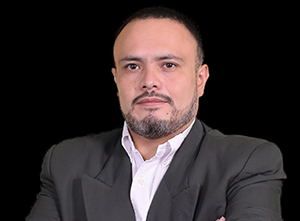The Bolivian Tsunami

By: Hugo Marcelo Balderrama - 2022/03/03
Share:At the end of the 1980s, the brothers Nelson, Eddy and Carlos Arévalo (who by then had not even turned 30) opened the FINSA real estate agency. The company began operating with luxurious offices, attractive secretaries and computers (which were luxury items at the time). Advertisements were then published in the newspapers offering high interest rates (close to 70% per year).
As expected, thousands of state workers, retirees and small savers entrusted their money to FINSA. Small amounts were raised at first. But given the “profitability”, large capital began to arrive.
However, when the government clamped down on drug trafficking in the early 1990s, FINSA, along with other real estate companies, began to feel the lack of fresh resources. Ergo, payment arrears were becoming more frequent. In these circumstances, traces of cocaine were found in two small planes that belonged to FINSA. The farce fell apart completely. Although the Arévalo brothers argued that they were the object of political persecution, the reality was that thousands of naive people had been scammed. Shortly after, Nelson Arévalo was found dead in a central area of my native Cochabamba.
Many journalists claim that FINSA is the biggest scam carried out in Bolivia. But that is an opinion I do not share.
Almost parallel to the events described above, the figure of Evo Morales began to emerge. Who, with a speech in favor of the “indigenous”, the “poor” and the “oppressed”, started a war – which lasted more than a decade – against Bolivian democracy.
Morales, although he is not the only one, is responsible for the death of several policemen and soldiers, for the bankruptcy of companies -especially in the tropical zone of Cochabamba- and for the destruction of Bolivian democratic institutions.
As I have already related in other articles, Carlos Mesa was the key factor for Evo to come to power in 2005.
Once installed in the Palacio Quemado, Morales began to apply the script of the Sao Paulo Forum (constituent assembly, nationalizations, deinstitutionalization of the forces of order and the supplanting of the republic by the narco-state). That recipe doesn't produce anything. On the contrary, it dragged us into an economic crisis.
Clearly, the origin of the problems is the establishment of the Economic Social Community Productive Model (MESCP) in 2006. The MESCP – contrary to the idea that the regime is trying to sell – is nothing more than the repetition of old Keynesian errors, among them, high state spending and intervention in the financial market. A vile scam that tries to make us believe that wealth can be created by dictatorial decrees.
Although the MESCP is beginning to fail on all sides, the main trigger may be the lack of financing. And it is that the government needs, with too much urgency, $2,000 million only for the first months of 2022.
The economist Mauricio Ríos García, in his article entitled: 2022 will be a very different year, mentions the following:
The lack of financing, which depends largely on the $3,000 million that they intended to issue already in the first quarter of 2021, and now on the $2,000 million in this first quarter of 2022, would allow short-term problems to be overcome and avoid a real disaster, since, among other aspects, it would allow the Central Bank's reserves to be shored up, liquidity to be injected into the banking and financial system, and exchange rate devaluation and even possible runs on depositors to be avoided.
Meanwhile, international reserves continue to fall, foreign debt swells like a balloon, Bolivian Fiscal Oil Fields produce more news than hydrocarbons. Which leads, in turn, to breaching contracts with Argentina, and importing an increasing amount of gasoline. Therefore, the rise in the price of oil, more than good news, is a cause for concern.
A tsunami is coming. Perhaps for this reason, Arce Catacora has no qualms about intervening, even more so, in the financial and banking sector (one of the few that is still standing). To, in this way, try to save his already worn model.
As we can see, the FINSA case is too small when compared to the Bolivian economic “miracle” scam.
You hurt Bolivia!
“The opinions published here are the sole responsibility of their author.”